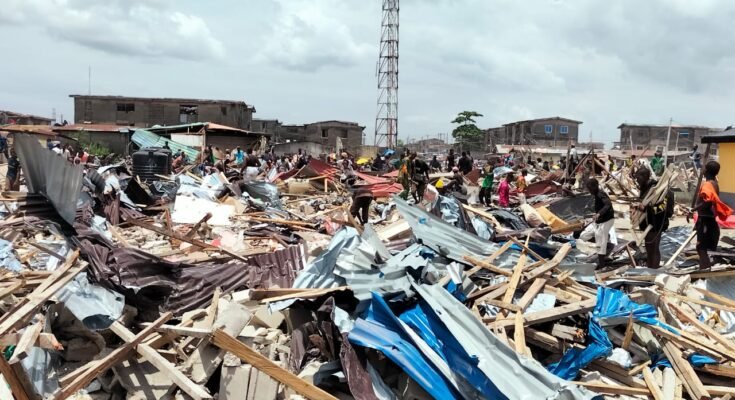I have spent five years travelling across West Africa, and I have never seen a country where properties are demolished as carelessly, brutally, and frequently as in Nigeria.
In Nigeria, demolition has evolved into a grotesque display of power — a theatre of impunity where might replaces reason, and governance becomes a weapon of revenge. It has become a template for wanton power, a tool for usurping wealth, and a means of settling political or tribal scores.
Each time, the story is the same: everything is justified under the convenient labels of “illegal structures” or “unauthorized land acquisition.” Yet, many of these properties were bought legitimately — with government-issued certificates and approvals — only to be later revoked by another administration. In this chaos, citizens lose their life savings, families are displaced, and the rule of law lies buried under the rubble.
Whenever I fly over Benin Republic or Togo, I am struck by the difference. The streets of Cotonou and Lomé are orderly, clearly mapped, and thoughtfully planned, even though Nigeria is wealthier and more advanced than these countries.
Even in Maradi, Niger — a city far very poor compared to Lagos or Onitsha — urban planning is visible and respected. I have lived there for five years, and I have never witnessed a single illegal demolition. The French-era city mapping still guides development, and no one dares to build outside the plan. Governance, there, is guided by law, not by ego.
So, I ask: does the Nigerian government truly understand that prosecuting corrupt land officials and touts who illegally sell land is part of its constitutional duty? That reform begins not with bulldozers, but with justice and accountability?
We have all seen how politicians, governors, and ministers seize land through sheer political muscle — grabbing, reallocating, and reselling prime property to enrich themselves and reward loyal cronies. This epidemic of land theft is not governance; it is organized greed, camouflaged as reform.
While recent demolitions may appear targeted at particular groups — especially Igbos — the deeper truth is that land-grabbing and impunity are national diseases. From the north to the south, the same rot festers. Demolition, in Nigeria, is not just an act of urban correction — it is a symptom of moral decay.
After 65 years of independence, Nigeria still lacks a comprehensive, digitized land mapping and registry system that guarantees ownership authenticity. How can a nation so rich in intellect and potential be so primitive in governance?
Until Nigeria replaces its bulldozers of vengeance with blueprints of justice — until it builds systems, not empires — we will keep watching our homes, our hopes, and our humanity reduced to dust.
𝗙𝗿 𝗔𝘂𝗴𝘂𝘀𝘁𝗶𝗻𝗲 𝗜𝗸𝗲𝗻𝗻𝗮 𝗔𝗻𝘄𝘂𝗰𝗵𝗶𝗲 is a Nigerian Catholic missionary priest working in the West African Sahel.
![]()



